Since the start of England’s 2018 World Cup campaign, Harry Kane has started all but one of their 19 tournament matches, missing a group stage match against Belgium in Russia. He played 1,620 minutes of England’s 1,830 in three tournaments. It’s not a prospect Gareth Southgate wants to contemplate, but it’s a contingency he must plan for: what would England do without their captain?
Kane is expected to be fit and firing for England’s Euro 2024 victory and has come off the bench will score against Bosnia and Herzegovina on Monday. However, he finished the season with Bayern Munich nursing a back problem. There have been recent glimpses of an England without Kane, with Ollie Watkins and Ivan Toney starting friendlies in March against Brazil and Belgium.
For all the talk about the wealth of attacking talent at Southgate’s disposal, England’s attack is built around Kane. How could it be any different for a player who scored 36 Bundesliga goals and eight assists in just 32 starts last season?
Whatever his tactical role or status at club level, England’s other forwards must time their movements and displace Kane, with the striker forming fruitful partnerships first with Raheem Sterling and then Marcus Rashford. Two players not selected for this summer’s tournament, but who were adept at moving into the space that Kane creates behind the defense when he falls short.
England’s chances this summer may well depend on how well Southgate manages to balance between attackers who want to receive the ball at their feet and those who want to run beyond. This is how England could fill a Kane-shaped void should the worst happen.
When England named their provisional Euro squad, Jude Bellingham was listed as a striker, a detail Southgate ignored.
Bellingham scored 19 La Liga goals in an excellent debut season at Real Madrid, making up for the lack of a recognized striker by playing an unorthodox forward role. It wasn’t exactly the false nine, which involves a nominal attacker leaving the defensive line and moving into the midfield areas.
Instead, Bellingham was a roving attacking midfielder, finding himself as one of Real’s most advanced players through late arrivals into the box. At times it felt like Bellingham were on the edge of a diamond, with Vinicius Junior and Rodrygo playing as split strikers. In other phases of the game, Bellingham looked like the number 9 between the two wingers.
One thing England would lack without Kane is physical presence, something Bellingham can replicate, as well as being reliable in front of goal.
However, Bellingham is more devastating when facing the play, and the center forward requires a lot of defensive work. Comparing the heatmaps of Bellingham and Kane in league football this season, Bellingham also does not occupy the center of the pitch in the same way, preferring to drift to the left. From then on he can play from the outside to the inside with the ball on his stronger right foot.
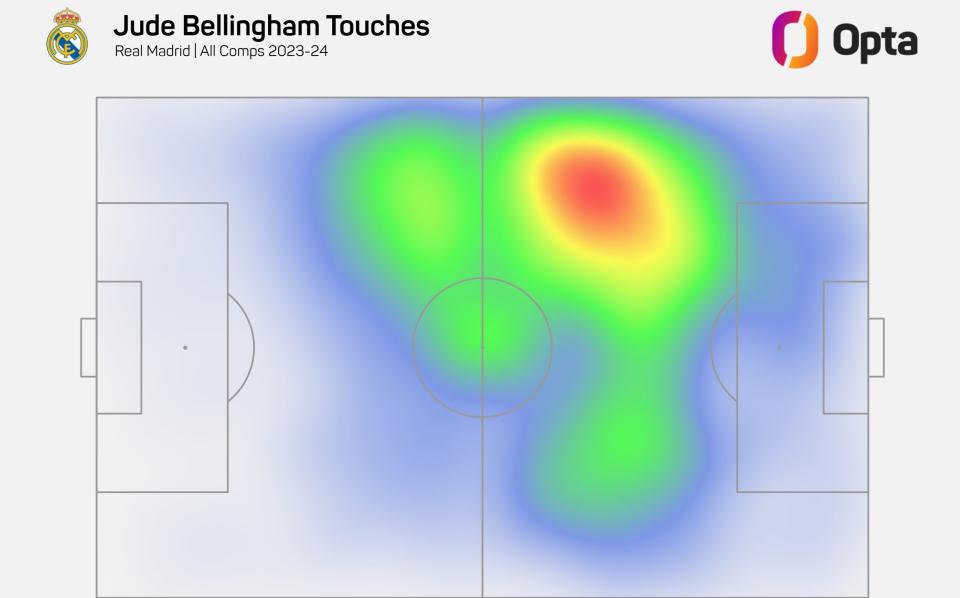

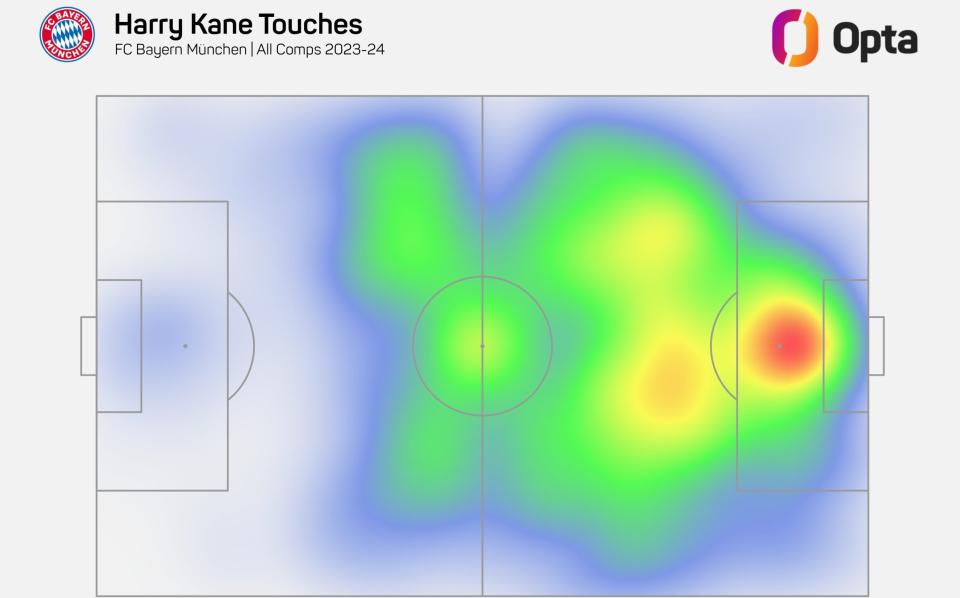

If England were to reprise Bellingham’s role at Real, they would also encounter other problems: a lack of midfield options to play behind him beyond Declan Rice, Conor Gallagher and a green Kobbie Mainoo, and a lack of pacy forwards to threaten and immobilize the opposition four defenders. Anthony Gordon and Bukayo Saka could do it, but it wouldn’t match the strengths of Cole Palmer, Jack Grealish or Phil Foden.
Equal for equal: Watkins or Toney?
If you wanted to replace Kane with as similar a profile as possible, then Ivan Toney is the best England have. Like Kane, he is a very underrated passer, adept at launching runners into space with movement and first-time passes around the corner. He also brings a stature that England would lose without Kane, and is an equally infallible penalty taker.
Unfortunately for Toney, his form declined after an initial purple patch following his post-ban return. Without scoring in the Premier League since February, Toney’s attacking output pales in comparison to Watkins. The Aston Villa forward had one of the best campaigns by an English striker (not named Kane) in recent times, scoring 19 Premier League goals and providing 13 assists.
Watkins has always been an excellent mover and stretcher of defences, but he has infinitely improved the creative side of his game, which encroaches further into Toney territory. Although Watkins’ best attribute is his intense running, he created more chances per 90 minutes than Toney did in the Premier League last season. Watkins recorded 0.5 expected goals per 90 minutes to Toney’s 0.4, but finished his chances at a significantly higher rate.
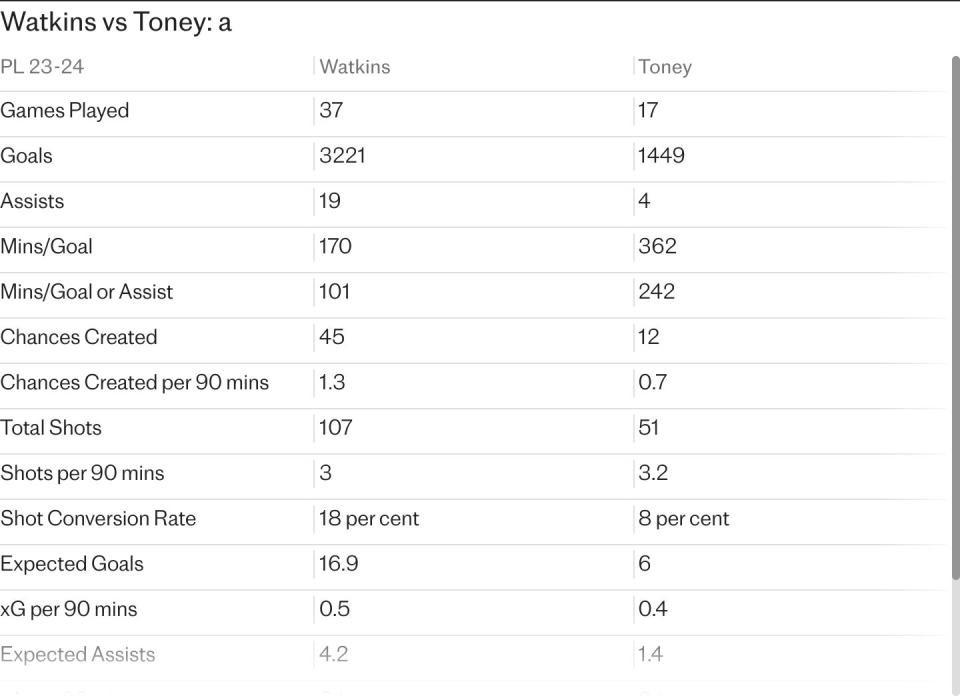

Southgate only has small samples of England minutes to analyse, but the team looked better with Toney up front against Belgium in March than with Watkins against Brazil. Watkins was also quite moderate against Bosniaalthough a dart behind the defense in the first half was picked off by Palmer.
Watkins could not have made a stronger case during the domestic season, but he did not close the door on Toney with his England performances.
Who can benefit from a different attacking balance?
For decades, England struggled to produce technical players who could receive the ball in the gap between the opposition’s lines. Now they are left with no options, with Southgate under pressure to include as many of Bellingham, Foden, Palmer, Grealish, Eberechi Eze or James Maddison as possible.
It’s the right kind of managerial headache, but Southgate will be aware that his England side have performed better with pace around Kane. The England captain, now 30, will not make many deep runs beyond the opposition defense, but will instead look for the ball to play forward passes. Kane’s distribution is excellent, so this is something Southgate will lean on rather than discourage.
However, it carries the risk of picking too many attackers who want the ball at their feet, all converging on zone 10 and staying on each other’s toes. This is why Bukayo Saka will likely be a constant presence on the right wing. Although his main strength is carrying the ball, he is disciplined enough to maintain his width and able to rotate beyond Kane. The same goes for Bellingham, who will certainly start as England’s attacking midfielder. He can operate short and long term, which complements Kane.
Foden may well have to come in from a starting position on the left. In England’s home victory over Italy in the qualifiers, one of their most impressive games, Kane and Foden’s touch maps were surprisingly similar. At City, Foden plays behind a striker Erling Haaland, who retreats defenses and creates spaces to receive the ball. Kane (touch map against Italy below) wants to draw defenders into attack and receive the ball himself in those same spaces. This is one of the reasons why Foden has not been as influential for England as his defenders would like. These are the commitments of international football.
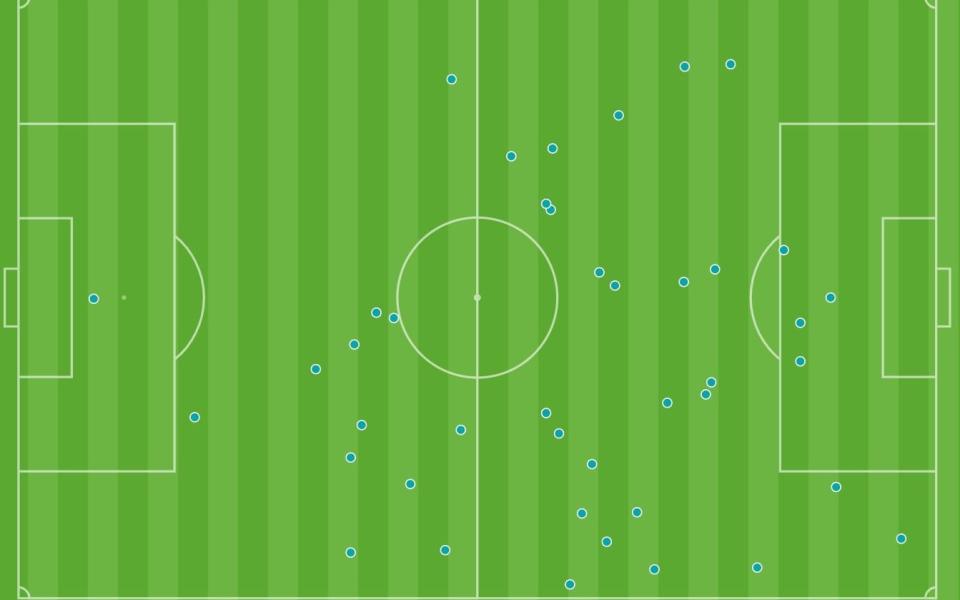

In the 1-1 draw with North Macedonia, when Watkins started up front rather than Kane and Bellingham sitting out, we see a tighter grouping of touches for Foden in the central areas, where he thrived for City last season.
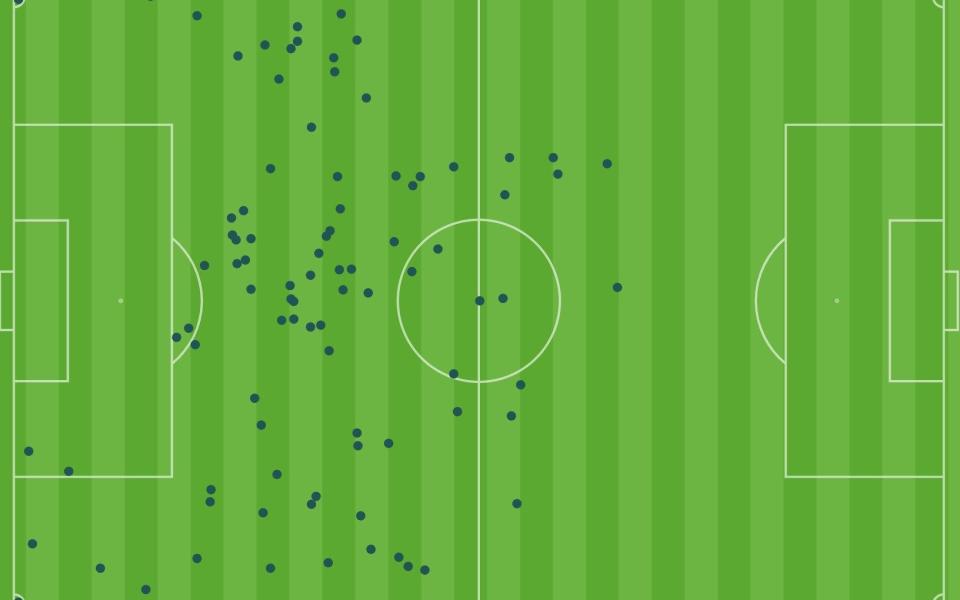

If Kane’s absence forces Southgate to play with a striker who remains on the shoulder, then an extra technical presence between the lines, such as Foden or Palmer, becomes imperative.





































